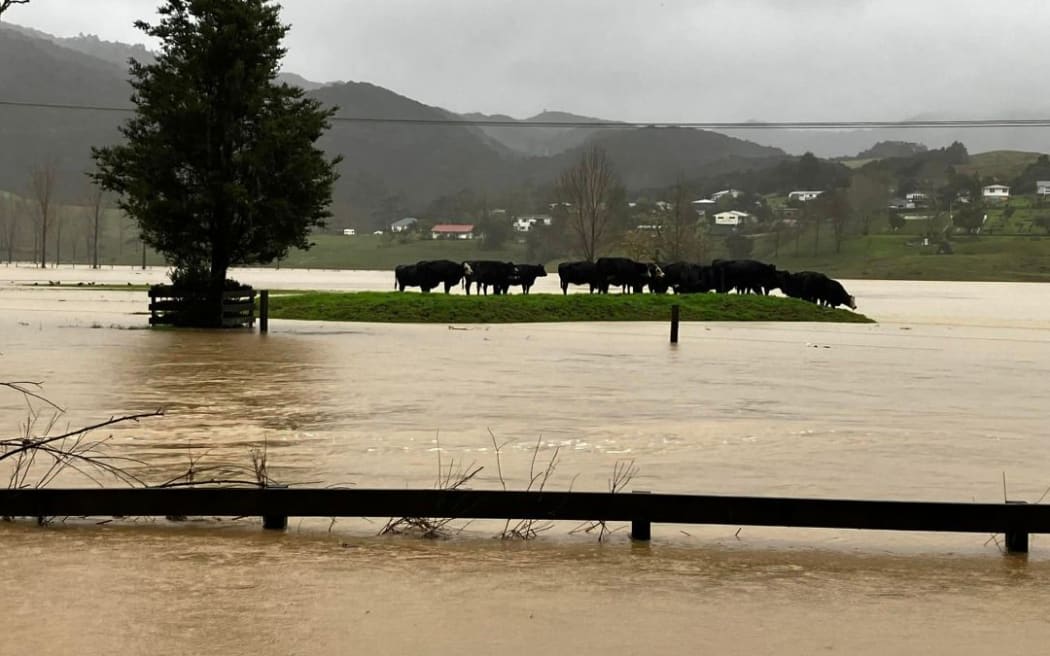
Cattle trapped in flooding in Northland. Photo: Facebook / supplied
In the far North it's been extremely wet and soggy. Kaipara has had a large calf sale. Friesian cross with Hereford or Angus four day old calves are selling pretty well but there's not much of an appetite from buyers to purchase Jerseys. And as one dairy farmer says the milk prices are so good it's not worth feeding and raising calves on site. There's been a few days of sun later in the week and grass is growing well.
In Matata near Whakatane spring has sprung and grass is even growing in the hill country. The native clematis is flowering about a month early and daffodils are flowering along driveways. Land is still saturated and one farm has a new stream flowing down its hillside as the water level is so high. Stock are in good condition as a result lambing and calving's going well and the farmer says wild deer have been munching young newly planted native trees despite efforts to fence them off. Edgecumbe College is starting to give its agriculture students rural experiences by getting local farms involved and showing the youngsters what happens on the land first-hand.
In King Country a Westpac helicopter fundraiser is being held on Saturday at the Taumaranui golf club, bringing together townies and farmers to play a bit of golf and raise money. Grass is growing well with an exceptionally mild season compared to recent years and that's despite a few earlier frosts. Lambing percentages are looking positive with plenty of twins frolicking around the paddocks and many farms start calving in a week or two.
In south Taranaki there's been up to 50 millimetres of rain but about double that further north in the region. Most dairy farms are doing well but milk production's slightly low as challenging weather and feeding difficulties has resulted in less milk. But that's not expected to last and the forecast for next week is plenty of sunshine. Early maize crops are next on the list for some farms with paddocks being prepared from next month. Locals are not impressed with the number and large size of pot holes along rural roads that are damaging trucks, utes and cars. One local said the only way for dairy tankers to avoid the big holes is to drive on the wrong side of the road and they aren't going to do that!
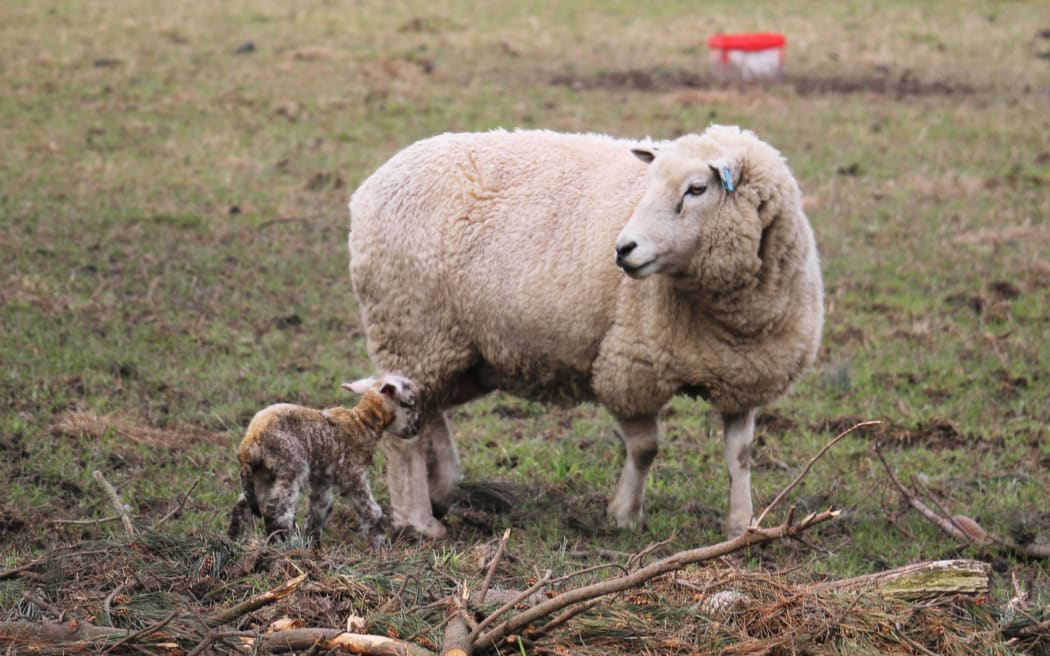
Photo: Cosmo Kentish-Barnes
Wet ground underfoot in Hawkes Bay has led to some cattle being taken off winter crop grazing as they have been churning up the mud and destroying kale plants. It's been one of the wettest months compared to earlier years but a bit of sun will soon dry out paddocks. Farmers are frustrated with pugging but are optimistic some sunny spring days will change the conditions. Lambing is well underway around the region and docking has started for a few early lambs.
The Whanganui area has had a long hard winter with plenty of cold wind and rain. However the grass is starting to spring and a couple of ducklings have been spotted swimming across a local pond. Newborn lambs are everywhere and some of last season's lambs are being sent to the Works along with mutton ewes. As one local puts it 'It's that time of the year when farmers have their heads down and bums up into work!'
Across the coast in Wairarapa it is also getting warmer and some decent winter growth is providing plenty of feed for stock. But in southern Wairarapa the hangover of surface water after a week of torrential rain has killed pastures and left a boggy mess in its path. A farming contact says dairy farmers are juggling calves with some unsure whether to keep heifer calves and fatten them or sell them off as calves. Those who formerly sold young cattle to go on live export ships from Napier, which have been cancelled, are pondering whether to fatten them on their farms - hoping beef prices will make it worth their investment over the next few years.
Dairy farmers in Nelson have spent the last week dumping thousands of litters of milk especially in the Collingwood area. Flooding and slips In Golden Bay closed roads and the more isolated dairy farms were still inaccessible later in the week for milk tankers. Dairy farmers are disappointed about wasting so much milk but accept there is nothing they can do about it. Getting bobby calves to the Works and sales has also been a problem for contractors, so utes and trailers have been transporting them as opposed to cattle trucks. Calving is keeping everyone busy and despite the rough weather mortality rates for young bovines was low.
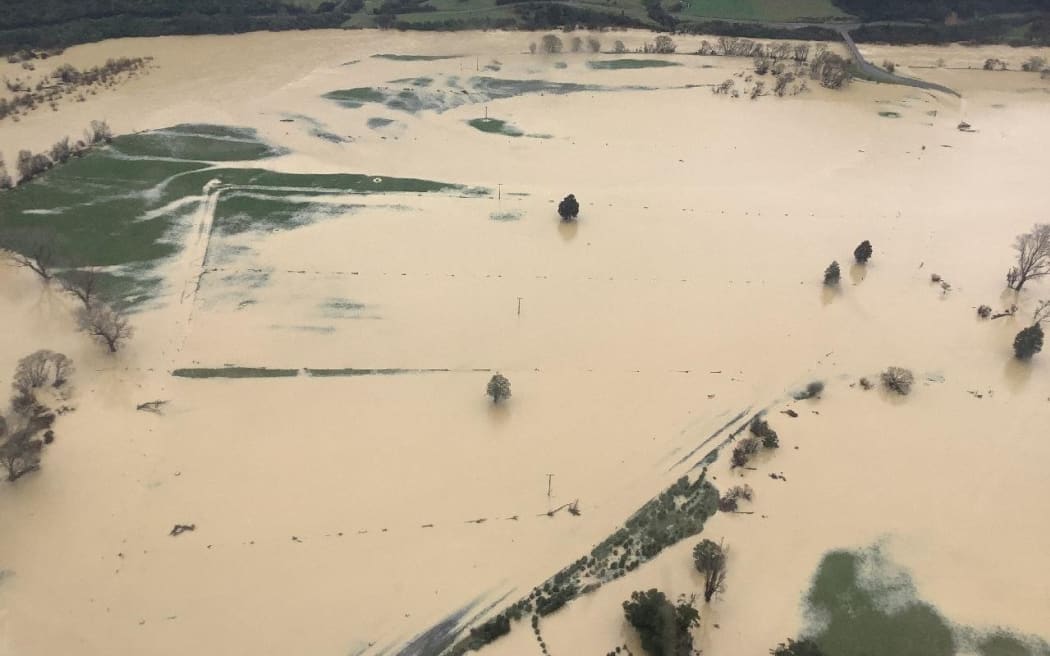
Some areas of Marlborough had over 1000mm of rain over about four days. Photo: Supplied / Marlborough District Council
In Marlborough everyone is in clean-up mode especially those near the flooded Wairau river. Some vineyards are still tying and pruning their vines behind schedule due to staff shortages and last week's horrendous weather. Vineyards with well-draining soil are ahead of those in boggier conditions as machinery can't get between the vines in the mud. Planting new blocks of sauvignon blanc grape vines has also been delayed until the soil dries out. Slips on hillside farms have blocked tracks amid lambing. However farmers can continue their lambing beats without disturbing newborn stock. They are relived all the rain was accompanied by reasonably mild temperatures which was kinder for the survival of newborn lambs as opposed to biting winter winds.
In North Canterbury there have been a few cooler misty days but much to the excitement of farmers spring clover is starting to slowly flourish. Some farmers are lambing and a Perendale breeder says he will start in a week or two and is setting his ewes on paddocks this week. Scanning showed about 170 percent and the ewes are in good condition. Calving has also started. Lower arable land is quite boggy but farmers aren't complaining saying they are happy with the rain, having come through several years of extreme droughts in the past. They would like a week or so of mild weather and then another top-up of rain.
Conditions in Mid Canterbury remain wet and farmers are battling to get paddocks ready and sown into spring crops. They need the sun to come out for a decent length of time soon. On the flip side to this there have been few frosts and grass is growing.
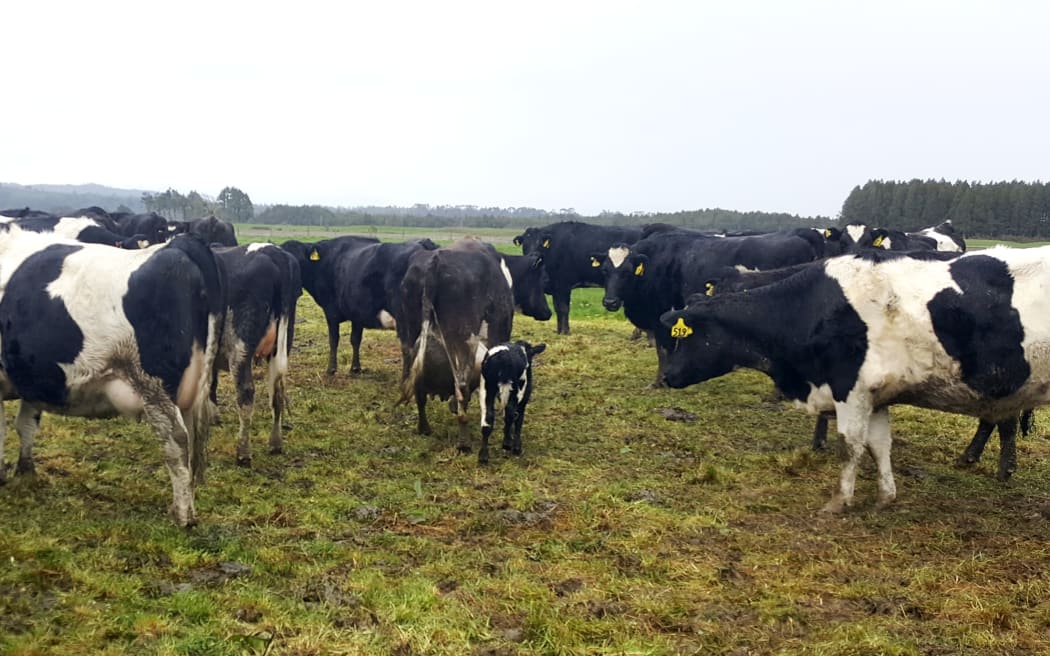
Photo: RNZ/Cosmo Kentish-Barnes
Otago has had a couple of robust frosts this week icing over puddles and coating windscreens of vehicles. There's a dusting of snow that can be seen on the ranges as well. Lambing is about to start and some farmers were disappointed with their scanning results which were as low as 120 percent. This is being attributed to this year's drought alongside expensive extra feed for stock. the condition of some ewes is also light.
In Southland there were a few fabulously fine days later in the week but soil temperatures are still hovering around six degrees.. Grass doesn't start really growing until the soil gets to about eight degrees. Calving is going well despite challenging weather conditions and lambing for the majority of farms will begin next month. Like Otago with ewe scanning the drought has led to a drop in fertility rates. About ten percent fewer lambs are expected to be born. Winter fodder crops are still going despite sodden ground last month which is a relief to farmers. And there's a call for rural people to take notice of their local body elections in October and start looking at mayoral and council candidates - then actually vote!
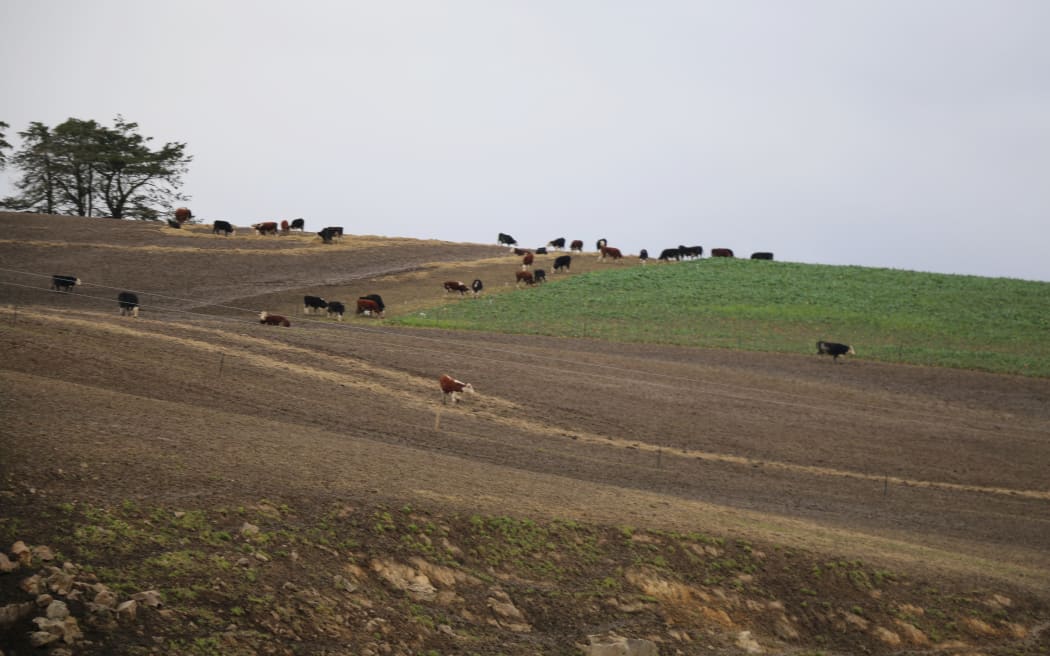
Photo: Blake Clinch

